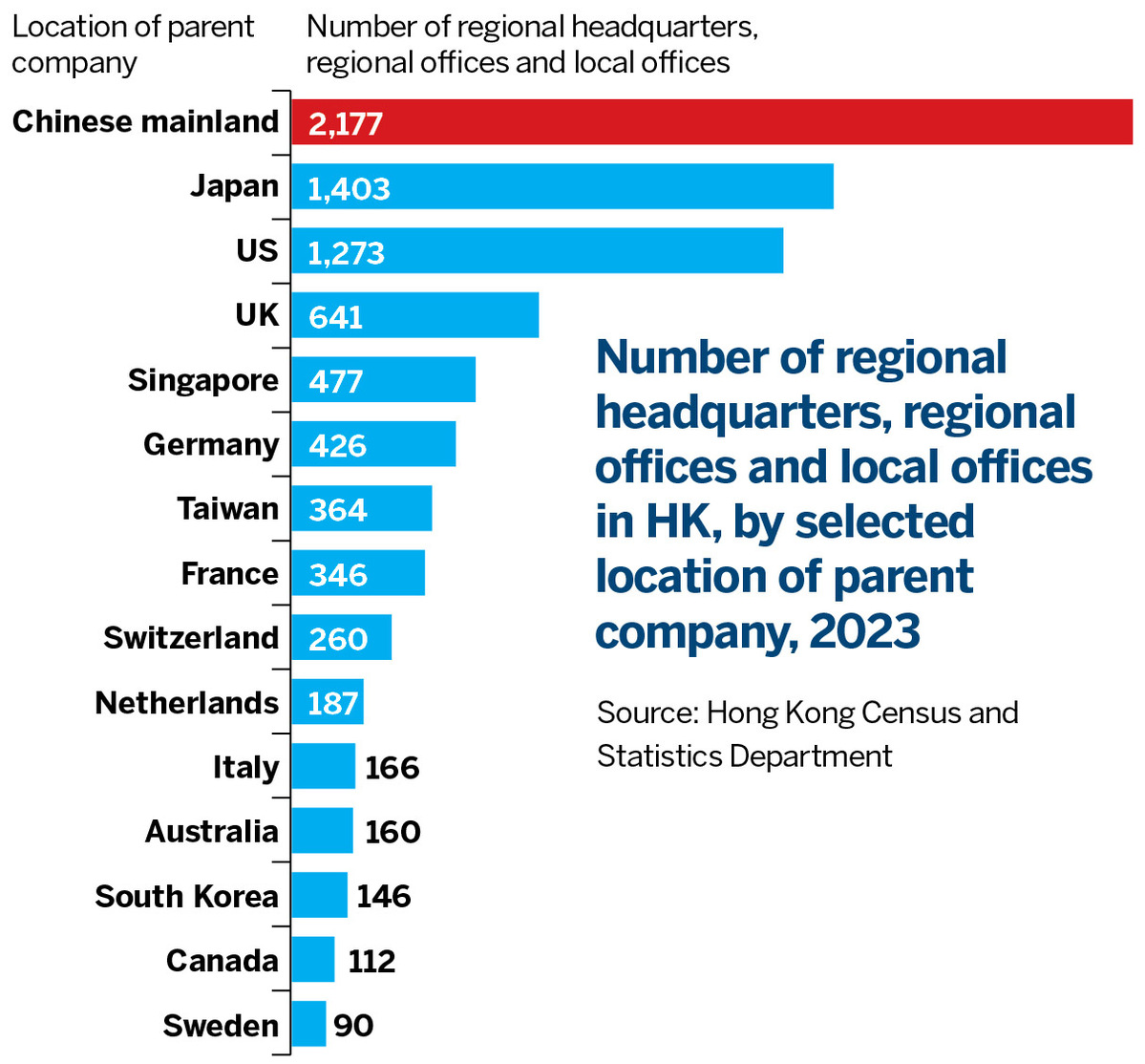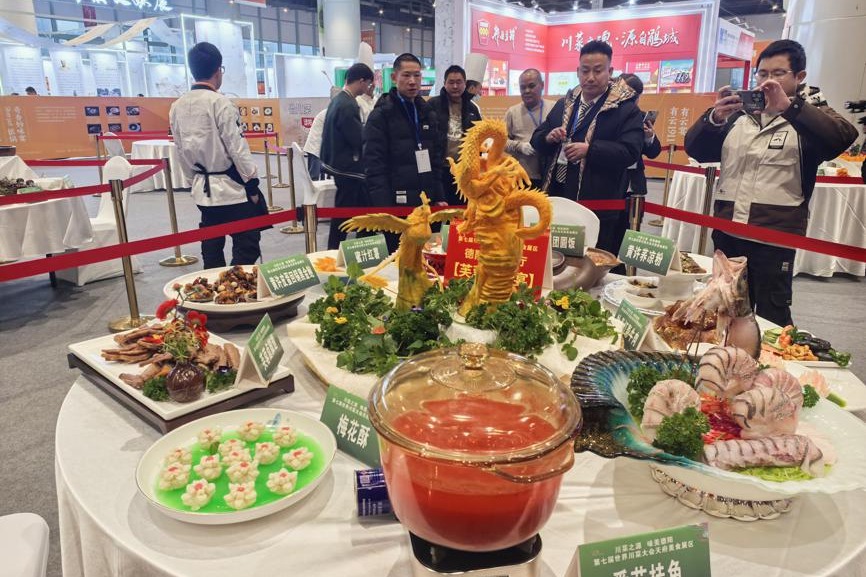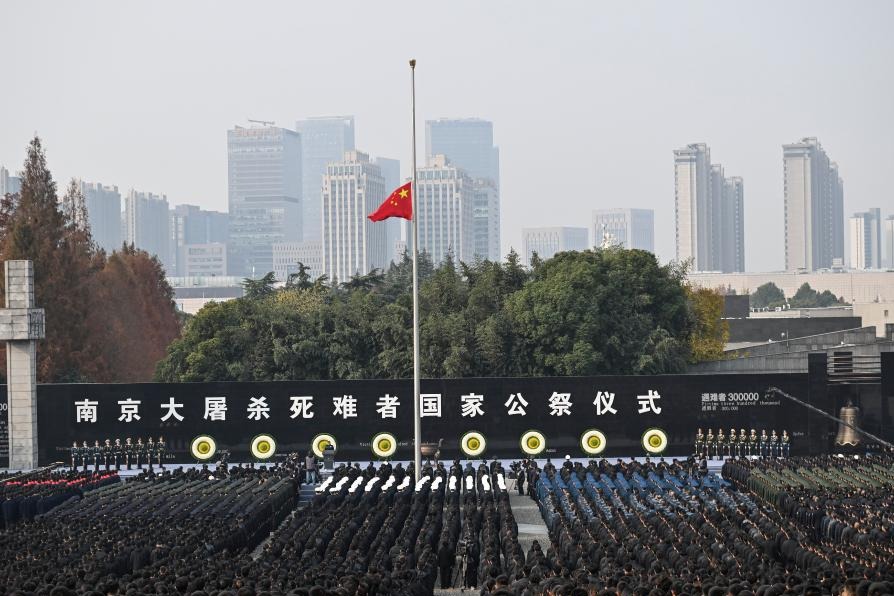Cushioning headwinds
A subtle global reconnection is underway as economies seek alternatives and forge new ties to navigate growing uncertainties spawned by fresh trade tariffs likely to be imposed by the incoming US administration. Liu Yifan reports from Hong Kong.


Establishing new links
Among the bright spots to have emerged are the large economies in Southeast Asia and the Middle East. Pinpointing where the specific opportunities lie, answers could be found at a summit held in the SAR in September featuring the Belt and Road Initiative - a China-proposed transcontinental project that aims to promote connectivity and cooperation.
At a panel discussion, Andrew Gan, an independent director of the Philippine Stock Exchange, highlighted the potential for deeper collaboration among bourses. He said the Philippines has been a "long-only" market for an extended period, and it would be interesting to work with Hong Kong to explore short-selling and derivative markets. Opportunities relating to environmental, social, and governance issues also show great potential as the Southeast Asian country "takes it very seriously", he said.
Apart from the Philippines, Indonesia's establishment of social enterprises is a major area where Hong Kong's strength in professional services could play an indispensable role, said Cahyo Muzhar, director-general of legal administrative affairs at the Indonesian Ministry of Law and Human Rights.
According to Muzhar, Indonesia is in the process of laying down the legal framework for social enterprises - a type of business that combines profitability with addressing social or environmental issues. These businesses are normally micro, small or medium-sized companies that are desperate for financing. On that note, Hong Kong, as a business and financial center, is a "role model" for cooperation, he said.
Tengku Zafrul Aziz, Malaysia's minister of investment, trade, and industry, said his country and Hong Kong ought to explore the huge potential of the Islamic compliance market together, noting that an estimated 60 percent of the world's Muslims are in Asia. "This goes beyond just food and finance, but also tourism, beauty products and so much more," he said.
Southeast Asian economies have performed impressively this year. According to McKinsey & Co, GDP growth was recorded across all countries in the region in the second quarter of this year, with Malaysia, the Philippines, Thailand and Vietnam achieving the highest year-on-year growth over the past four quarters.
China and the Association of Southeast Asian Nations are each other's largest trading partners, with the 10-member regional grouping accounting for 15 percent of China's total trade last year - an increase of 10 percent from 2010. China accounted for 20 percent of ASEAN's total trade last year - up from 12 percent in 2010 - according to McKinsey.
For Hong Kong, ASEAN's support is crucial in the SAR's bid to join the Regional Comprehensive Economic Partnership - the world's largest free trade agreement, which includes 15 economies in the Asia-Pacific, and is expected to further deepen the region's economic interdependence.
The Middle East's geostrategic location at the crossroads of Europe, Asia and Africa offers Hong Kong businesses access to a vast market base. There is growing potential for collaboration among investors in Hong Kong and Saudi Arabia, including opportunities to tap into each other's stock markets through exchange-traded funds.
However, Pires warned that cultural and social differences with new friends could create significant hurdles, and misinformation would present difficulties, citing misconceptions about working conditions in China, where it is claimed that workers have to toil for up to 20 hours daily in factories.
Up to 80 of 125 MBA students from Porto Business School have mandatorily opted to go to the US for their studies. But, according to Pires, next year could see a big shift with annual compulsory US studies to be made optional. The change would allow students greater flexibility in choosing destinations that align with their personal and professional goals.
"The US is still important, but it's an established way. We need to try new ways," said Pires. She identified three regions - China, the Middle East and Africa - that will shape the future of the international business landscape. For Africa, she pointed to Angola and Mozambique as natural focal points for Portugal due to their shared history. She also highlighted the untapped potential in countries like Morocco, Tunisia, Kenya, South Africa, Ghana and Zimbabwe.
For Hong Kong, the mission is clear - adapt and seize the opportunities in this shifting global pattern.
Lawrence Li Lu-jen, chairman of Hong Kong's Financial Services Development Council, succinctly put it: "Everyone in the world is forming new partnerships. We in Hong Kong must find our niche in this realignment."
Contact the writer at [email protected]
- Ex-Suzhou official demoted over procurement scandal
- Experts: China poised to compete globally in AI large models
- Beijing's 3 new subway lines operational
- Beijing adds 3 new metro lines, further easing downtown traffic
- Expats donate blood at Shanghai charity event
- Subway delivering parcels, a boost to low-carbon logistics underway





































